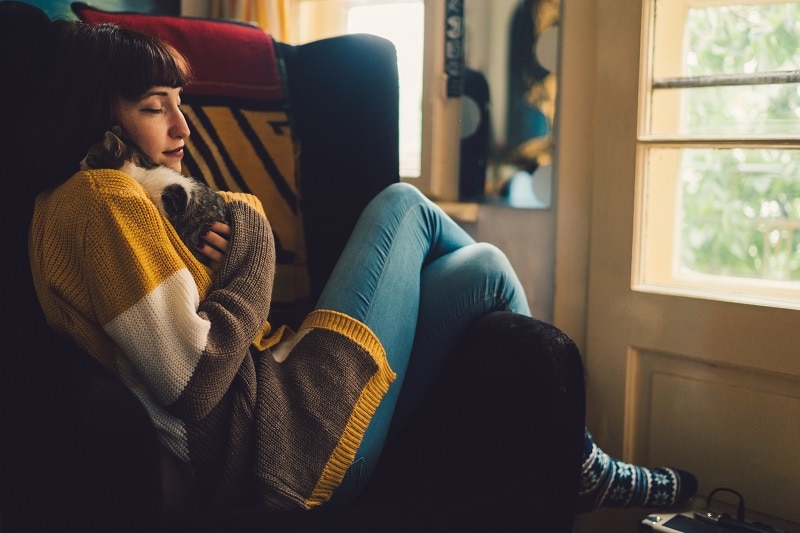I've come across plenty on dialing down pandemic-related fear. I skim most of the pieces because the suggestions are fairly obvious. Like much in life, we often know what we should do. That’s not the hard part; putting pointers into practice is.
Here are four doable ways to help you feel better:
1. Stop checking the news. Instead, let it come to you.
As a former full-time newspaper journalist, I'm usually a diehard when it comes to news. To wit: I have subscriptions to three news organizations. But now I rarely go to their websites. Instead, I've signed up for a reasonable combo of breaking news, coronavirus updates and morning updates from them. This keeps me adequately informed through focused headlines that can't drown me but let me read more should I choose. Plus, sometimes the alerts are uplifting: I'll be getting a $1,200 check!
2. Stop visiting social media. Instead create your own tailored networks.
You might be inclined to dismiss this tip, saying social media is your lifeline to goings-on, but hear me out. If you turn to social media for news updates, see tip #1. Misinformation and snarky comments that pop up in feeds do little good.
Then create one or two groups through email, text or another medium that's mostly in your control. One of my networks is seven friends who live across the U.S. We update each other on our cities and states, and share personal happenings. This gives us a trusted sense of developments nationwide, without someone on Twitter (whom we likely barely know) lashing out at churchgoers/elected officials/fill in what you'd like here. If you've been using social media for updates from your local government or health department, see if your inbox can get them directly.
3. Meditate—but not the way you think you must.
Meditation can be really hard. Sitting still and being quiet makes many of us feel anxious and brings up troubling thoughts—the very things we're trying to escape right now. Under normal circumstances gunk like that can be a first painful step to improving our lives. But now? More anxiety isn’t what we need.
“Some types of meditation purposefully activate the stress response, the sympathetic nervous system, in order to practice observing fears, worries … and other emotions,” says Ann Swanson, M.S., a certified yoga therapist, and author of Science of Yoga, which has been translated into more than 10 languages. “By shifting to observing the anxious feelings arise … you can notice your patterns, like how your physical body responds. Do you feel a tight feeling in your chest? Does your posture or breath change? By observing these things, you can learn how to recognize the emotions early on before they become too overwhelming.”
If you're new to meditation or unable to make shifts similar to those Swanson describes, try one of these alternatives:
- Think of a person (or people) or animal (or animals) or place you love, and then send love to it/them and imagine that love coming back to you. Keep the exchange going for as long as feels comfortable.
- Pick a very simple task (washing dishes, sweeping, walking) and stay very, very focused on it for as long as feels comfortable.
“When you are in a state of anxiety, it is like alarm bells are going off in your brain in your fear center, an area called the amygdala,” Swanson says. Meditation has been shown to lessen electrical activity in the amygdala and increase activity in the prefrontal cortex, which is responsible for careful planning, conscious thinking and emotional regulation. “While meditating, you literally change the patterns of the electrical activity in your brain to be indicative of better focus and relaxation,” she says.
4. Do something you enjoy—every day.
This tip, ironically, has been the hardest for me to pull off, even though it involves pleasure. My resistance comes from thinking I should seek out obviously productive activities given the strained state of the world.
I finally started achieving this pointer by simply doing it, no second-guessing. Sometimes in the morning I pick something I want to do that day and then look forward to it until it happens. Other days, I'm not sure what I want to do, so I let it arise as the day moves on and then do it. If by late evening I haven't yet done something I truly enjoy, I leave the kitchen a mess and watch a fun television show about love. My fluid approach might not work for you, so perhaps you build in a daily scheduled time. Whatever your method, just do it. The very fact that things are rough right now is all the more reason to make sure you enjoy yourself.
Mitra Malek is a news journalist and contributing editor for Yoga Journal.




